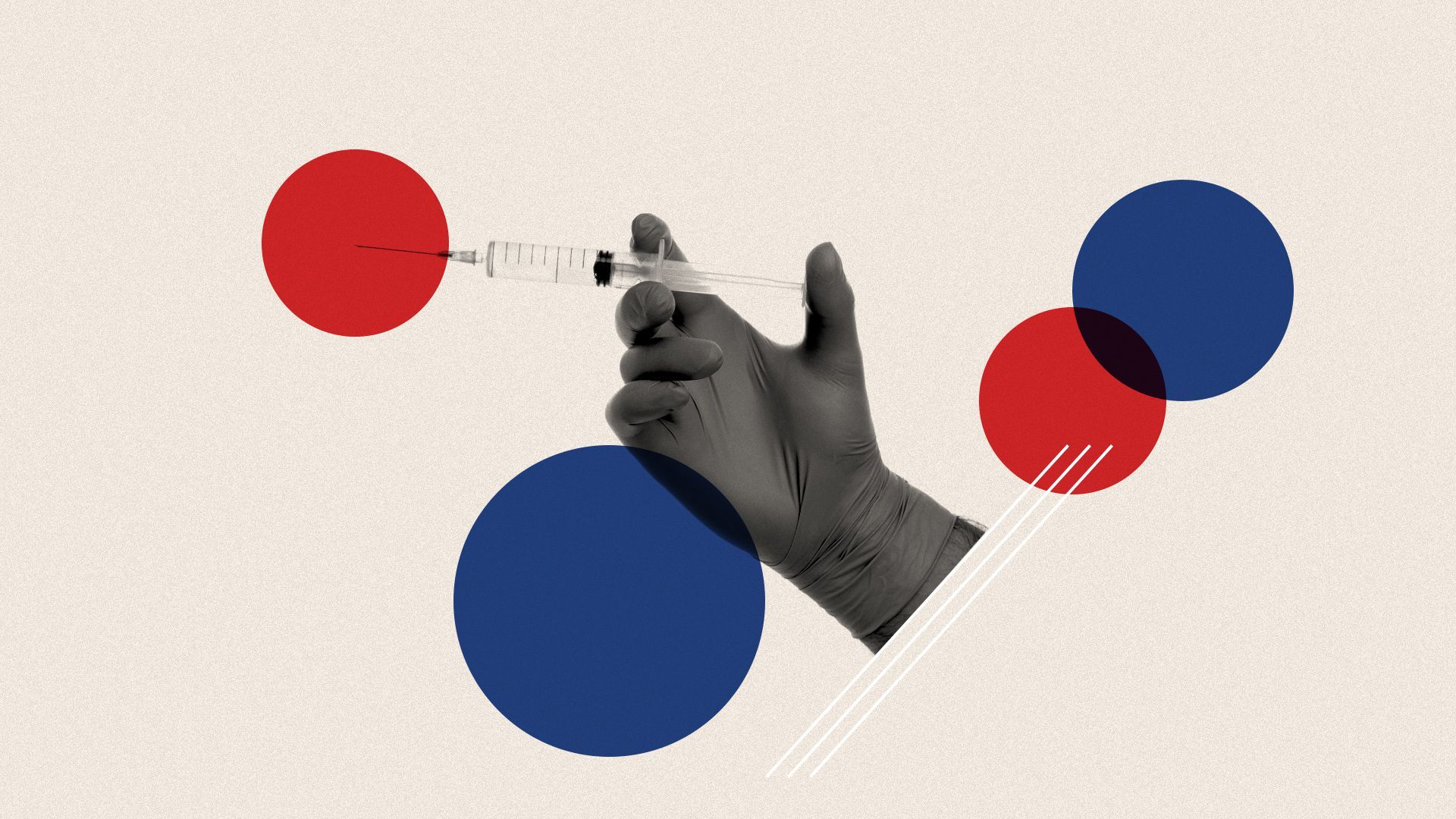The debate over infecting volunteers to test coronavirus vaccines
Add Axios as your preferred source to
see more of our stories on Google.

Illustration: Aïda Amer/Axios
The question of whether to deliberately infect volunteers with SARS-CoV-2 in order to test vaccines for COVID-19 is being hotly debated by scientists, ethicists and lawmakers.
The big picture: Controlled human infection (CHI) studies have been used for centuries to evaluate vaccine doses and candidates for influenza, norovirus and other diseases. But COVID-19, with its severity, novelty and unknowns, presents thorny questions for this scientific tool.
Background: Challenge studies were used nearly 300 years ago to test the first efforts to stop the spread of smallpox.
- The studies would raise eyebrows today: In exchange for a pardon, condemned prisoners were exposed to a small dose of smallpox that gave them a mild case of the disease and then lifelong immunity. Then, when Princess Caroline of Wales wanted to immunize her children, orphans were first inoculated to test the safety of the approach.
How it works: Vaccine studies typically involve immunizing people with a vaccine (and others with a placebo), waiting for them to be exposed to the virus and seeing if the vaccine protects them.
- In challenge studies, people are deliberately exposed to a virus in a controlled environment.
What's happening: No COVID-19 challenge trial is planned yet, but more than 14,000 people have said they'd participate in one, and scientists, ethicists, lawmakers and others are weighing in on how they might be done.
- The World Health Organization on Wednesday released guidance for possible studies, emphasizing independent review of any trials.
"They're controversial and right now there is so much we don't know," says ethicist Seema Shah of Laurie Children's Hospital of Chicago and Northwestern University, and an author of a new paper in the journal Science that outlines an ethical framework for using the studies for COVID-19.
- "But it is worth the investment in laying the groundwork to do such a study," she says.
Proponents say the studies could speed up data collection about the effectiveness of a vaccine — especially if social distancing or a waning outbreak limits peoples' exposure to the virus — and therefore its availability.
- Shah and her co-authors write that such studies could also help to better understand the course of the disease by being able to monitor the viral load and peak infection in a group of people known to be exposed.
- And, they could help determine correlates of protection — essentially markers of an immune response to a vaccine that could then be used to assess and accelerate other candidates.
- "The main point is they can contribute a lot more than vaccine efficacy," Shah says.
Yes, but: There is currently no treatment to stop COVID-19 from progressing to a severe disease, making a challenge trial risky right now, says Myron Levine, associate dean for global health, vaccinology and infectious diseases at the University of Maryland School of Medicine.
- And in the time it takes to grow the virus in a lab and design a challenge study, Levine says there could be several candidate vaccines that could be tested with rapid randomized control studies, citing what was done in West Africa to study a vaccine for Ebola.
- The data, he says, would also represent the target population for a vaccine, which includes older adults, compared to challenge trials that propose enrolling young people.
"Personally, in the absence of a way to turn this off, I don’t think we should go ahead because I don’t think the risk and what we learn bring us faster to where we want to be."— Myron Levine
The bottom line: Challenge trials can play a role in understanding disease, but there are open questions about when and how they should be used for COVID-19.
Editor's note: This story has been updated to clarify that Myron Levine is with the University of Maryland School of Medicine.
